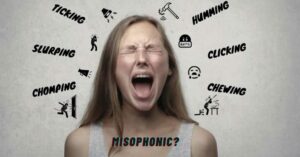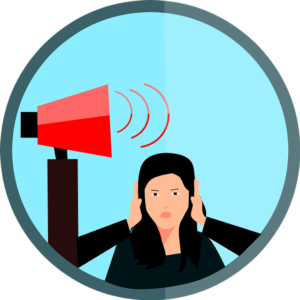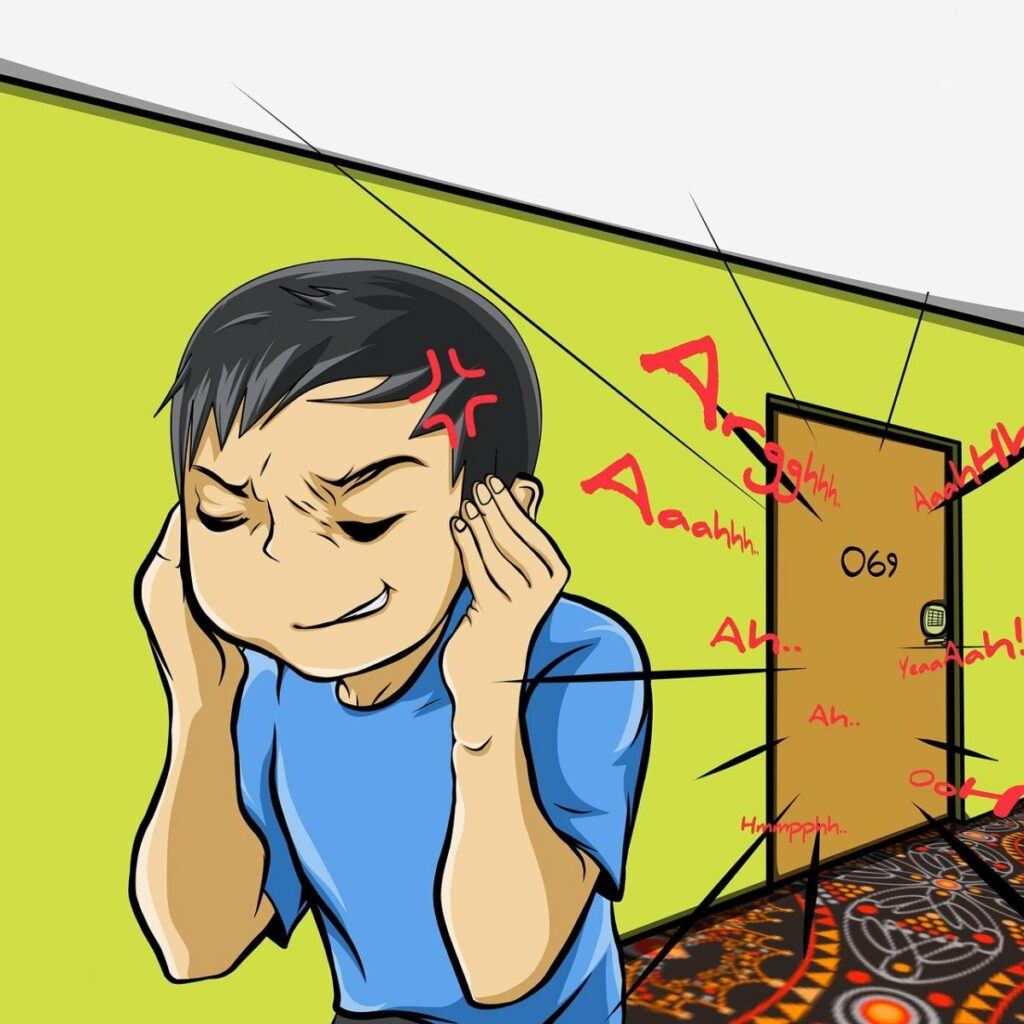Misophonia and ADHD are two conditions that are often misunderstood. People with misophonia experience extreme anger or disgust when they hear certain sounds, while people with ADHD have trouble focusing and paying attention. In this blog post, we will explore how the two conditions interact and how they can affect someone’s life. We will also discuss treatment options for both conditions.
Contents
Defining Misophonia

Misophonia, also called selective sound sensitivity syndrome, is a condition in which certain sounds trigger an intense emotional reaction. These reactions can range from annoyance and frustration to anger and disgust. People with misophonia often feel that they need to escape or remove themselves from the situation as quickly as possible. In some cases, the person may even lash out at the person making the triggering noise.
Triggers vary from person to person but are often specific to certain sounds like chewing, slurping, tapping, or clicking. Misophonia can occur at any age but is most common in adolescence and young adulthood.
Defining ADHD
ADHD, or attention-deficit/hyperactivity disorder, is a condition that affects focus, concentration, and impulsivity. People with ADHD often have trouble paying attention and maybe easily distracted. They may also act impulsively and have difficulty sitting still. ADHD can occur in both children and adults. It is estimated that between three and five percent of school-aged children have ADHD.
Symptoms
It is important to identify the signs of a disorder when learning about them.
Misophonia
People with misophonia often feel a strong negative emotional reaction when they hear certain sounds. These reactions can range from annoyance and frustration to anger and disgust. The person may feel the need to escape or remove themselves from the situation as quickly as possible. In some cases, the person may even lash out at the person making the triggering noise.
ADHD
People with ADHD often have trouble paying attention and staying focused on tasks. They may also be easily distracted and have difficulty sitting still. Some people with ADHD may also act impulsively without thinking about the consequences of their actions. They may also have a hard time following instructions and may be easily bored.
Causes
The exact cause of misophonia is unknown, but it is believed to be linked to the brain’s reaction to certain sounds. Misophonia may be caused by a combination of environmental and genetic factors. ADHD is also believed to have a genetic component. In addition, trauma relating to noise can also be a significant cause of misophonia.
ADHD is also thought to have a genetic component. It is believed that ADHD is caused by a deficiency in the neurotransmitter dopamine. Dopamine is responsible for regulating attention and behavior.
How Misophonia and ADHD Interact

People with ADHD are more likely to experience misophonia than those without ADHD. This may be because people with ADHD have trouble filtering out background noise. As a result, they are more likely to focus on and be bothered by small sounds that other people might not even notice. In addition, people with ADHD tend to be more impulsive and may react more quickly and angrily to triggering noises.
People with ADHD may be more sensitive to certain stimuli than those without the condition. This hypersensitivity can make it difficult for them to focus and pay attention. Someone with misophonia may have trouble focusing on a task if there is a triggering noise in the background. Or, someone with ADHD may be more likely to make a loud noise themselves if they are not paying attention.
To certain extents, misophonia can also trigger or worsen ADHD symptoms. For example, if a person with ADHD is constantly trying to block out triggering noises, they may have trouble focusing on tasks or conversations. In addition, the emotional reactions associated with misophonia can interfere with learning and memory.
Treatment Options

There is no cure for misophonia, but there are treatments that can help lessen the symptoms. Some people with misophonia may benefit from sound-masking devices, using earplugs or white noise machines, which produce white noise or other soothing sounds to help block out triggering noises. Others may find relief through counseling or therapy, which can help them manage their reactions and emotions. Exposure therapy, which slowly introduces the person to triggering noises, may also be helpful.
People with ADHD are often treatable with medication, such as stimulants, which can help improve focus and concentration. Therapy and counseling can also be helpful in managing ADHD symptoms. Stimulant medications, such as methylphenidate (Ritalin), help to improve focus and concentration. Non-stimulant medications, such as atomoxetine (Strattera), may also be effective. Counseling and behavior therapy can also help people with ADHD learn how to better control their impulses and emotions. ADHD symptoms can also be managed through various self-help tips such as exercise, a healthy diet, and good sleep habits.
If you have both misophonia and ADHD, it is important to seek treatment for both conditions. Treating one condition may help lessen the symptoms of the other. For example, if you are able to manage your ADHD with medication and therapy, you may find that your misophonia symptoms also improve.
Conclusion
Misophonia and ADHD are both complex conditions that can interact in a variety of ways. If you have both misophonia and ADHD, it is important to seek out professional help. A mental health professional can provide you with tools and resources to help you manage your symptoms. With proper treatment, you can live a full and satisfying life.
For more information, please contact MantraCare. ADHD is a neurodevelopmental disorder characterized by difficulty in paying attention, hyperactivity, and impulsivity. If you have any queries regarding Online ADHD Counseling experienced therapists at MantraCare can help: Book a trial ADHD therapy session


